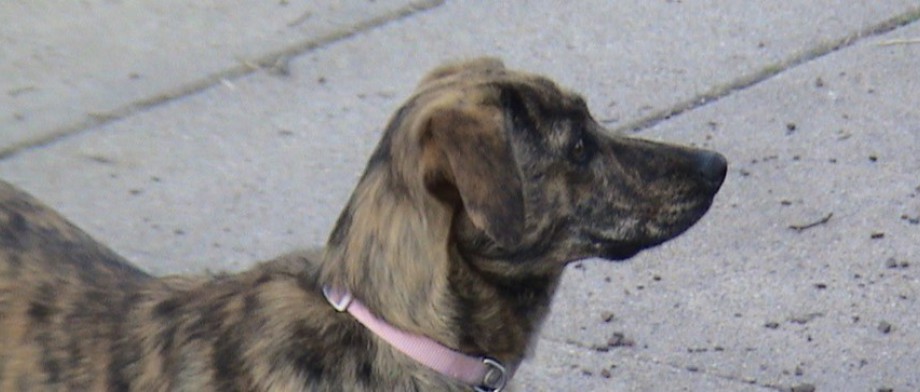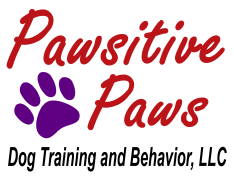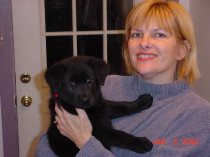
Your New Puppy
Getting a puppy exciting for everyone, but those first few weeks at home can shape the dog he will grow to be. Up until a puppy reaches 12 -16 weeks of age, her experiences, whether positive or negative, will imprint on her brain and create life-long perceptions of future experiences. To best acclimate your puppy to his new surroundings we've offered a few helpful tips.
- Keep visitors away for the first few days so your pup has a chance to become comfortable with his new surroundings. After that invite lots of people over in the coming months. This will help socialize him to strangers as well as start him out feeling comfortable with people coming into the home.
- Introduce your pup to everything you can think of that he will encounter in his life. People with hats, open umbrellas, cars, even a black garbage bag sittng at the curb.
- Be diligent about keeping vet appointments for the required shots. Puppies receive some vaccinations such as DHLPP several times over a course of weeks. This allows the antibodies to build in the puppy's system.
- Start house training immediately. Take your pup out after it eats, drinks, plays and awakens. Keep your puppy in sight at all times to avoid accidents.
- Crate train your pup. A crate becomes a haven for your pup when he needs a nap or becomes overwhelmed. Using a crate while you are not home not only keeps your possessions safe from inappropriate chewing, but keeps him safe as well.
- And while we're on the subject; puppies like to chew. Be sure to have several chew toys around of varying textures. If you see your pup chewing something inappropriate stop him and immediately put a toy in his mouth and PRAISE. Do not allow chewing on your skin or clothing.
- Feed a good-quality puppy food. Read labels and avoid foods that contain corn or meat by-products, food coloring or the use of artifical preservatives such as ethoxyquin, BHA and BHT.
- Behaviors you will find unacceptable in a 2-year old dog, such as jumping, chewing on hands, etc. should not be permitted by your puppy.
- Enroll you pup in a puppy class. Starting off training the basics helps provide the necessary structure and clear communication that make puppyhood easier.
- Safely expose your pup to everything he might encounter in his lifetime during the first 7 - 14 weeks of his life. This is the socialization period. Positive exposure during this time will help your puppy grow to be a confident, easy-going dog.
- As your pup gets older, should you be concerned with behaviors that your puppy displays, contact a qualified trainer for help. The more undesireable behaviors are repeated and rehearsed, the stronger they will become.
Lastly, enjoy your puppy! Starting your pup out right will help ensure a long and happy relationship.

